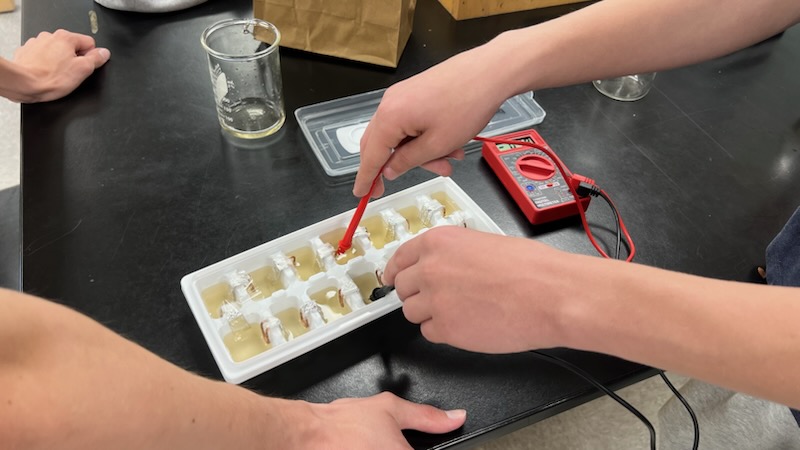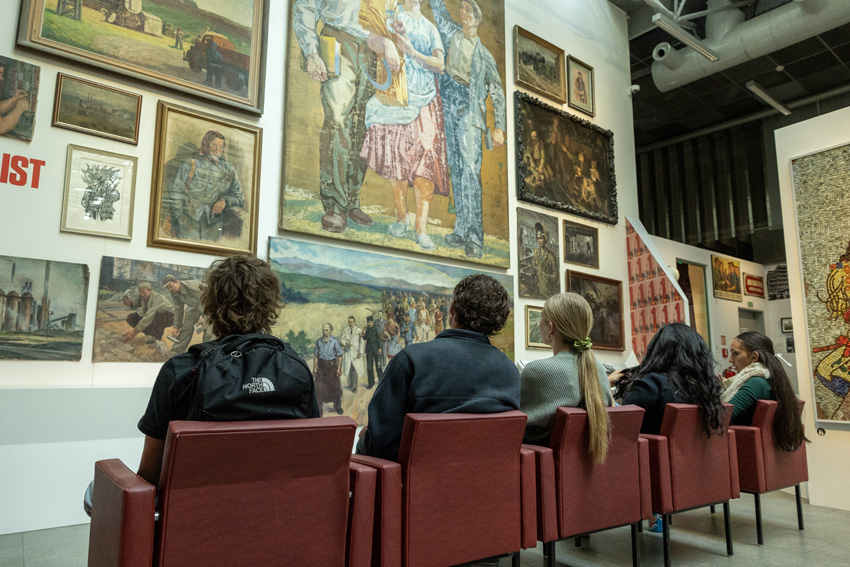The beginning of each school year brings in new challenges for every student. Underclassmen must assimilate to the buzz of high school, while upperclassmen have to begin to think about their futures.
For many pupils, enrollment in Advance Placement (AP) classes can assist in landing a spot in their prospective college. This year, FC has added two new AP classes for students to choose from: AP Biology and AP European history.
Overall, campus upperclassmen can now take seven different AP classes, including English language, English literature, Calculus, Statistics, Biology, US history and European history.
School administrator, Michelle Warkentin, played a large part in the decision to add the new classes. She felt this year was a good time to bring up the number of AP classes to seven.
“By adding these classes we are now up to seven AP classes that are offered at Fresno Christian, “Warkentin said. “By having this many {classes} offered it allows our school to look more desirable to students, parents and colleges. Parents want to know that by sending their students to our school they will receive a quality education. I believe we already do this very well and by adding these classes it only helps to strengthen this truth.”
Dr. Karen Walters, AP biology teacher, expects students in her class to be more driven because more responsibility is placed onto them.
“I expect them to be great, motivated students and to work hard,” Walter said. “The goal of the class is to prepare them for the AP exam in May. That’s a nationwide exam set to nationwide standards, so there’s more responsibility on them to learn the material. We get a chance to go in depth in a lot of concepts and really learn things at an advanced level.”
While AP classes offer extensive learning, they also come with extra hours of dedication to the course. Senior Annalise Rosik says AP biology is challenging, but Walters keeps the class interesting.
“Obviously, because it’s an AP class I expect it to be difficult, but I think it will be a learning experience,” Rosik said. “It’s very quick pace, so we’re going through like a chapter a week. She [Walters] has a really great background in biology, and she makes it interesting by telling stories that makes it funny and keeps us interested in what we’re learning about.”
Another edge to AP classes is the college credits students obtain from the course. Jason Kim, ?14, shares that this was part of the reason he joined AP European History.
“Of course I want college credit,” Kim says, “But I also wanted more AP {credit} to increase the breadth of my knowledge.”
The climax of an AP student?s year is the final exam, which determines whether the students will receive college credit for their work throughout the year. Although the test seems to be the most critical aspect of the AP course, AP European history teacher, Kori Friesen, says she doesn?t want students to be let down if they fail the test.
“The goals for the year are to have both classes feeling confident enough to take the end of the year test and not feel like they are failing or unprepared,” Friesen said. “I also want my class to recognize that passing or not passing they are a success and the test is not the end-all. I don’t want them to feel like they’ve failed if they fail the test.”
Follow The Feather via Twitter: @thefeather.
For more features, read the Aug. 30 article, Greek Fest opens doors to cultural experience.






